The Annual Academy Awards bonanza is not merely about the glam and glitz at the Shrine Auditorium, nor the limos and parties on Beverly Hills' Rodeo Drive. It is also a high-powered business meeting for Hollywood studio bosses to scope out the next stars, and for directors and producers to decide what will be the next big thing for movies in the coming year. This was especially true for the stars and professionals involved in the film Crouching Tiger, Hidden Dragon (臥虎藏龍) at the Oscars ceremony last Sunday.
The buzz surrounding the Crouching Tiger group in the run-up to and during the Oscars approached fever pitch for its four actors and actresses, Chow Yun-fat (周潤發), Zhang Ziyi (章子怡), Michelle Yeoh (楊紫瓊) and Chang Chen (

The shift in attention toward Asian films has led Michael Barker, president of Sony Pictures Classics to predict that Asia will be the next big thing in the global film market.
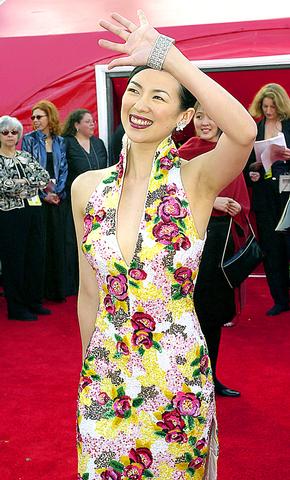
PHOTO: AP
Chow, for example, has seen his profile raised considerably since the making of Crouching Tiger. Just after arriving in Los Angeles for the Oscars, he was chosen by People Magazine as one of the "50 Most Beautiful People in the World" and was whisked away for a photo shoot. Among his on-going projects is a Steven Spielberg adaptation of the Arthur S. Golden novel Memoirs of a Geisha and two starring roles in films by his old friend John Woo (吳宇森). One, titled Bulletproof Monk, is the story of Chinese immigrants' lives in America in the early 20th century. The second, King's Ransom, will be an adventure thriller. According to Chinese-language media, Chow is now fetching US$2 million for each role.
Zhang is another rising star in Hollywood. Her free-spirited character Jen in Crouching Tiger won her Best Supporting Actress honors at the Independent Spirit Awards and intensive coverage with major international media such as Time Magazine. Her glittering Escada dress at the Oscars night also made her one of the evening's most glamorous and memorable figures. The 21-year-old starlet has recently finished a Korean film titled Moosah (
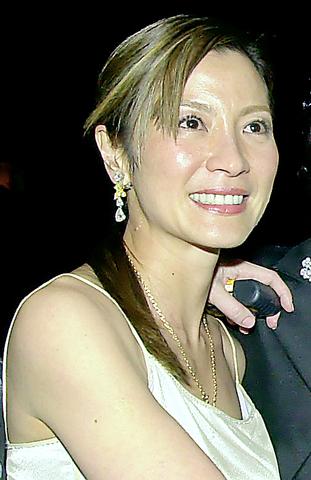
PHOTO: AP
Few would have dared imagine before Crouching Tiger that audiences around the world would relish sitting through two hours of a Chinese-language movie about Chinese culture. But Barker sees a cultural sea change in the way film's are consumed and perceived. "You will find teenage girls making Zhang Ziyi their role models -- to be a free woman. And you will find middle-aged men seeing themselves in Chow Yun-fat's character."
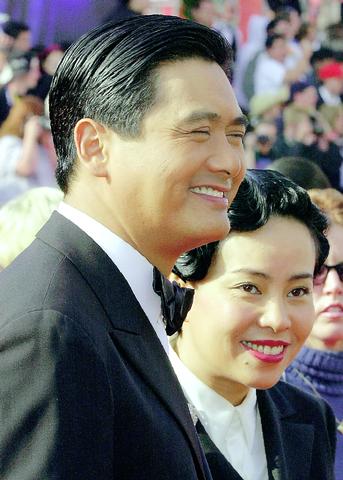
PHOTO: AP
Crouching Tiger director Ang Lee (李安), who was born in Taiwan but lives in the US, is widely hailed for having bridged cultural divides with his movie. "Elementary school kids, including my son's classmates went to see this film two, three times. It is a beginning for them to appreciate different cultures through the common language of films," Lee said.
The windfall of the Crouching Tiger juggernaut for Lee, the actors and the collaborators from Taiwan, China and Hong Kong is likely to include more rewarding opportunities to appear in major Hollywood productions and greater access to funding for future projects.
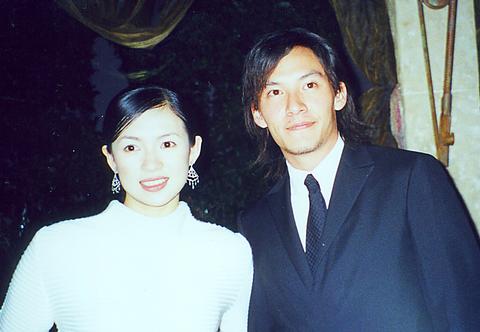
PHOTO: YU SEN-LUN, TAIPEI TIMES
Philip Lee, a Hong Kong-based film producer and a co-producer of Crouching Tiger said the film's success has greased the wheels of Hollywood's financing machine for Asian movies. "If you want to make a film with a story related to Chinese culture, or with scenes mostly shot in China, the process is much smoother nowadays," he said.
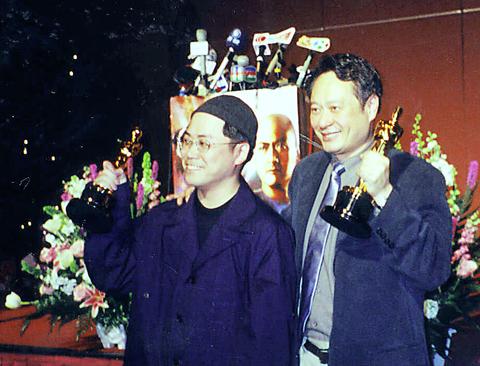
PHOTO: YU SEN-LUN, TAIPEI TIMES
For Crouching Tiger, Lee was responsible for financing and insurance. He has also set up production companies in Los Angeles. "We went through so much hardship making Tiger," he said. "And there is such a big difference now." Philip Lee is currently working on projects with Paramount and Universal Studios.
Barbara Robinson, managing director of Columbia Pictures Film Production Asia, has played another key role in bringing the production force of Hollywood studios to Asia. Columbia Asia is the first major studio production house to set up in Asia, and Crouching Tiger was among its first four investments. The other three were Zhang Yi-mou's (張藝謀) The Road Home (我的父親母親), Not One Less (一個都不能少) and Tsui Hark's Time and Tide (順流逆流). Zhang's films won a Silver Bear at the International Berlin Film Festival and a Golden Lion at the Venice Film Festival.
Robinson said this year Columbia Asia would release four new films, including Taiwan director Chen Kuo-fu's (陳國富) sci-fi Double Vision (雙瞳) and Chinese director He Ping's (何平) Hero's Heaven and Earth (天地英雄). "You'll have sci-fi, a big action film and a thriller. So there is a variety that breaks down stereotypes that Asian films are all shoot 'em up action thrillers," she said.
Sony Pictures Classics has been set up to provide the promotion and distribution muscle to give new Asian films needed exposure to guarantee box office success.
Michael Barker, running through the list of films picked up by Sony Pictures Classics last year, noted that the company had incorporated almost every major director in East Asia. "Every 10 years, the global film world sees a new cycle. The talent and creativity are entering a new cycle now," he said. "In the 1970s it was in Germany. But right now, Asia is where the energy is."
With Asian movie stars and filmmakers looking for funds and opportunities in Hollywood and major studios coming to Asia looking for new creativity, the gap between tinseltown and Asia is likely to become narrower.

As we live longer, our risk of cognitive impairment is increasing. How can we delay the onset of symptoms? Do we have to give up every indulgence or can small changes make a difference? We asked neurologists for tips on how to keep our brains healthy for life. TAKE CARE OF YOUR HEALTH “All of the sensible things that apply to bodily health apply to brain health,” says Suzanne O’Sullivan, a consultant in neurology at the National Hospital for Neurology and Neurosurgery in London, and the author of The Age of Diagnosis. “When you’re 20, you can get away with absolute

When the South Vietnamese capital of Saigon fell to the North Vietnamese forces 50 years ago this week, it prompted a mass exodus of some 2 million people — hundreds of thousands fleeing perilously on small boats across open water to escape the communist regime. Many ultimately settled in Southern California’s Orange County in an area now known as “Little Saigon,” not far from Marine Corps Base Camp Pendleton, where the first refugees were airlifted upon reaching the US. The diaspora now also has significant populations in Virginia, Texas and Washington state, as well as in countries including France and Australia.

On April 17, Chinese Nationalist Party (KMT) Chairman Eric Chu (朱立倫) launched a bold campaign to revive and revitalize the KMT base by calling for an impromptu rally at the Taipei prosecutor’s offices to protest recent arrests of KMT recall campaigners over allegations of forgery and fraud involving signatures of dead voters. The protest had no time to apply for permits and was illegal, but that played into the sense of opposition grievance at alleged weaponization of the judiciary by the Democratic Progressive Party (DPP) to “annihilate” the opposition parties. Blamed for faltering recall campaigns and faced with a KMT chair

A police station in the historic sailors’ quarter of the Belgian port of Antwerp is surrounded by sex workers’ neon-lit red-light windows. The station in the Villa Tinto complex is a symbol of the push to make sex work safer in Belgium, which boasts some of Europe’s most liberal laws — although there are still widespread abuses and exploitation. Since December, Belgium’s sex workers can access legal protections and labor rights, such as paid leave, like any other profession. They welcome the changes. “I’m not a victim, I chose to work here and I like what I’m doing,” said Kiana, 32, as she